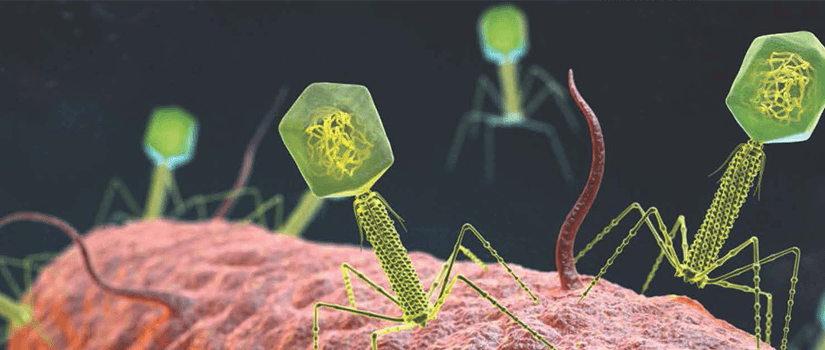Pharmacy alumni work with pediatric infectious disease physician to battle bacterial diseases
One of the hallmarks of finding answers to unique problems in the world of science is interprofessional collaboration. Two alumni from the University of South Carolina College of Pharmacy joined with an alumna from the School of Medicine to tackle an ever-increasing health care dilemma — helping patients who are resistant to antibiotics that would traditionally be used in their treatment.
Bacteriophage, viruses that infect bacteria, might sound like a novel approach. But the use of bacteriophages has been around for more than 100 years. While more research is needed, bacteriophage is beginning to gain ground in the fight against antibiotic resistant diseases.
Robert Daniels, ’05, and Andrew Gainey, ’11, have teamed with Anna-Kathryn Burch, M.D. ’02, to treat patients using bacteriophages at Prisma Health Children’s Hospital. To date, they have successfully treated two patients and are treating a third patient, with hopes of finding a bacteriophage to treat a fourth patient.
Daniels, who is codirector of the Antimicrobial Stewardship program at Prisma Health, explains that phages are viruses that invade bacterial cells, disrupting the bacterial metabolism, thus causing the bacterium to collapse.
“These phages can only multiply and grow inside a specific bacterium, meaning they are not dangerous to humans,” he says. “Once the bacteria collapse, they stop multiplying.”
To our knowledge, no one else in South Carolina nor in the Southeast is doing this type of treatment in the pediatric population.
Anna-Kathryn Burch, M.D. Prisma Health Children's Hospital
Gainey, a pediatric infectious disease pharmacist and director of the Pediatric Specialty PGY2 Pharmacy Residency for Prisma Health Children’s Hospital, says bacteriophages seem to work where traditional methods of treatment fail against antibiotic-resistant bacterial infections in certain patient populations.
“We have treated one patient who was immuno-suppressed,” he says. “The others have been patients with cystic fibrosis, which tends to present the most complex and resistant bacteria. Because of their disease, these patients are constantly placed on antibiotics and that drives the resistance.”
Phages are unique in that, while there are many types of phages, only one specific phage will attack a specific bacterium, and it may take months to grow a particular phage to match that bacterium.
“That means a phage can be used to directly target disease causing bacteria,” Daniels says. “For example, a bacteriophage specific to group A streptococcus will only kill bacteria that cause strep throat infections.”
“We are one of the few pediatric institutions in the U.S. that has this much experience with phage therapy according to published literature,” Burch says. “To our knowledge, no one else in South Carolina nor in the Southeast is doing this type of treatment in the pediatric population. We want to let other practitioners know we have this capability so their patients can be referred for phage therapy if no other options for treatment of the resistant bacteria are available.”
